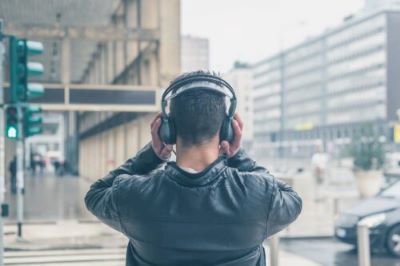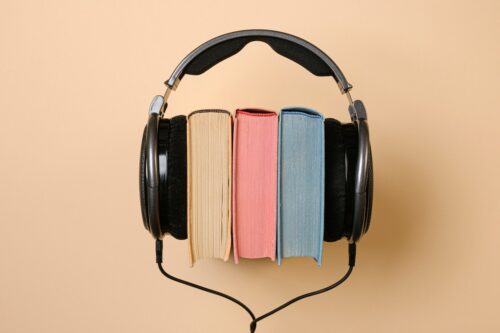We live in a world where books, screens, and notifications vie for our attention. Amid the busyness of school, music can help you stay focused and motivated during study sessions. Whether you like classics or upbeat tunes, these tips will show you how to use music effectively while studying. Keep reading to find ten practical tips for students on effectively incorporating music into their study routines and explore why students turn to music while studying.
Instrumental Music for Focus
Mozart, Beethoven, and Bach classical compositions have soothing and structured melodies, making them ideal for studying. Lo-Fi or Chillhop are also popular choices because they feature instrumental beats and relaxed rhythms that boost concentration. Some learners find nature sounds to be relaxing, while others prefer video game soundtracks. White and pink noise is helpful in masking background noise.
Some people find that binaural beats help them achieve a specific state of focus and relaxation, making this type of music more conducive to tasks requiring deep concentration or meditation. Based on the information above, it’s clear that the type of music to put on when studying depends on individual preferences.
So, it’s essential to experiment with different types and see which ones enhance your concentration and productivity. Additionally, consider the specific task you’re working on, as some may benefit from silence. Don’t forget to keep the volume at a level where it supports concentration.
Match Music to a Task
When you pay for an essay you end up with high-quality content that helps you understand that particular academic topic or task. But to gain knowledge from papers written by a subject expert, you must read and understand the information presented. If you want to focus while reading academic material fully, match the type of music to the task. For example, energetic compositions can be motivating for tasks requiring creativity, while calmer sounds may be better for analytical or focused work.
Volume Control
Some learners listen to music at a high volume level and have to be reminded to keep it down. In such a case, it’s easy to wonder whether the music is indeed helping to learn. So, adjust the music volume wisely when you study because it affects how well you can focus. Keep music as background noise, not a distraction, so it doesn’t interfere with your concentration.
It should support focus rather than competing and overpowering your thoughts. Invest in quality headphones if necessary to block out noise. Besides, Listening to music at excessively high volumes over long study sessions, especially through headphones, can damage your hearing over time. It’s essential to protect your hearing by keeping the volume at a safe level.
Stay Mindful of Lyrics
Be cautious with songs that have lyrics, especially if they’re in a language you understand. Lyrics can divert your attention from your studies. If you prefer music with lyrics, consider selecting songs you are familiar with.
When you know the lyrics by heart, they are less likely to interrupt your focus. However, the easiest method to steer clear of lyrics is to opt for instrumental pieces with minimal or no singing. This can establish a pleasing backdrop without the potential for lyrics to distract focus. If you’re studying a subject that requires language comprehension, be mindful of the language of the lyrics. Lyrics in a language you don’t understand may be less distracting.
Have a Playlist Ready
If you find it essential to have something play in the background while tackling homework or post-class studying, have a study playlist that aligns with your preferences and objectives and enhances concentration.
To achieve this, take the time to carefully curate a list with a collection that maintains a consistent tempo and mood. This handpicked selection will establish the ideal ambiance and reduce the need for constant track changes. Don’t hesitate to regularly update the playlist to keep it from becoming repetitive.
Whether you’re adding new tracks or removing those that no longer resonate with you, this practice can help maintain a fresh and engaging study environment. It’s crucial to factor in the duration of your study session and the length of a playlist. This way, you’ll have enough songs to cover your entire study duration.
Mindful Listening
Make mindful listening a part of your routine, whether it’s before or after study sessions, during breaks, or as a daily relaxation practice. You can also use short breaks during your study sessions to listen to specific tracks that always boost your mood, especially when dealing with a topic that you are struggling to understand. This will help relax and rejuvenate your mind before returning to the task. Balancing things helps you avoid burning out and makes the study routine manageable.
Use Music as a Timer
Using music as a timer for studying helps you manage time and stay focused. It keeps your study routine balanced and organized, making your study sessions more effective. For this strategy to work, use specific songs or tracks to time your study sessions and breaks. For example, study for the duration of one song and then take a short break when it ends. This prevents students from overworking or studying for excessively long periods. Once a song ends, it serves as a cue to take a break and avoid burnout.
Over time, students may associate their study sessions with the music they choose as timers. This can establish a favorable and pleasant atmosphere for learning.
Try Things Out and Adjust As Needed
The music you choose for science homework might not be suitable for languages. Your preferences can vary based on the subject or mood, so try new things and adjust as needed. If students use the same music all the time, their minds might become too familiar with the playlist, leading to predictability and reduced effectiveness. Experimenting keeps the mind engaged and curious.
Besides, not all study tasks are the same. Some require deep concentration, while others are more creative or analytical. Different genres can be better suited to specific tasks, so experimenting helps students match the music to the task. Trying out different genres also fosters an open-minded attitude. This helps students discover new artists, styles, and cultural influences they might not have encountered otherwise.
Establish a Consistent Pattern
Incorporate music into a routine as a trigger to signal the start of studying or working on assignments. When you put on your preferred study playlist, your brain knows it’s time to study.
During breaks, listen to different music or take short walks to recharge your mind. This helps maintain your productivity and avoid burnout. Take a step further and keep a study journal, or use digital tools to track your study hours, productivity, and the effectiveness of the music you use. This can help you make data-driven adjustments to your routine.
Remember, consistency is key to making your study routine a habit. It’s also advantageous, but it’s entirely acceptable to be adaptable. That’s because life is filled with unforeseen shifts, so don’t become disheartened if you need to adjust your routine occasionally.
Silence When Necessary
Establishing a consistent routine is essential. So, if music helps you concentrate, use it regularly during your study sessions to condition your mind for focused work. But remember, sometimes you need silence for really focused work. Don’t be afraid to switch music off if it gets in the way.
What Motivates Students to Incorporate Music Into Their Study Sessions?
Students opt for music during their studies for a range of purposes, as it can yield positive and advantageous outcomes for their study routines:
- Mood Elevation
Music can influence your emotional state. Uplifting compositions can enhance motivation, whereas soothing melodies can alleviate stress and anxiety, fostering a more suitable backdrop for studying. Conversely, lively tunes can serve as a catalyst, assisting students to boost productivity.
- Eliminate Distractions from Surrounding Noise
Students frequently wear headphones while studying, whether in a dorm room or at the library. This is because music can be a great tool to drown out disruptive or bothersome surroundings, such as the hustle and bustle of a busy library or other people’s conversations.
- Enhanced Focus
For some students, the appropriate tracks can improve concentration. For instance, instrumental or ambient tracks can create a consistent background noise that reduces interruptions. On the other hand, music, especially calming and soothing melodies, can reduce stress levels. When you’re less stressed, it’s easier to concentrate and perform well in your studies.
- Enhanced Memory
Research suggests songs can potentially enhance memory and cognitive functions. This can be particularly advantageous when trying to memorize information for exams. While some students prefer silence for concentration, others benefit from thoughtfully chosen background music. Thats why it is essential for each student to discover the right balance that complements their individual study habits.
Wrapping Up
Whether in college or high school, no matter the course you are taking, music can be a beneficial tool for studying. However, what works best varies from person to person, so it’s essential to find the approach that suits your individual needs and study preferences. Experiment with these tips and adjust your study routine accordingly.


